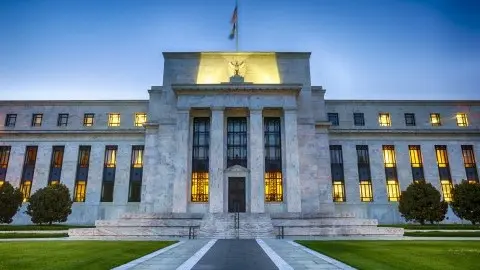Switzerland: ‘Self-determination’ vote may have major impact on markets
A referendum in Switzerland on Sunday could complicate current negotiations with the EU and the economic and financial consequences could be significant
Referendum on 'self-determination'
Switzerland goes to the polls this Sunday to decide whether Swiss law should take precedence over international treaties. Supporters of the initiative, which was launched by the country's biggest party, the ultra-conservative and eurosceptic Swiss People's Party (SVP or UDC), say global agreements should be renegotiated or cancelled if they clash with the results of a domestic referendum.
The vote is a consequence of a previous referendum on immigration almost five years ago when a majority of Swiss citizens voted against mass immigration and asked for the introduction of immigration quotas. Such quotas would have been in direct opposition to the international treaties that existed between Switzerland and the European Union. And so after long discussions, and contrary to what was required by the Constitution, the initiative never became law. Instead, the government pushed through regulations giving priority to Swiss-based workers in certain sectors of the economy with the highest unemployment rates.
The SVP argues that the Swiss Constitution, which normally requires parliament to turn referendum results into law, has been overruled by international law, and it wants to stop this from happening again.
Negotiations for the “framework agreement” could be affected
This vote really arrives at the worst possible moment because the Swiss and the EU are currently renegotiating their relations for the coming years. The EU wants a "framework agreement" to formalise relations and replace the 120 existing treaties. The purpose of this agreement is to force Swiss legislation to automatically align with European rules in certain areas. The framework agreement would also give the European Court of Justice an important role in conflict resolution. The initiative on Sunday has no direct link with these negotiations but it could certainly influence the process because a 'Yes' vote would make a framework agreement difficult to defend politically.
Negotiations between the EU and Switzerland have become bogged down lately and it is difficult to see how a framework agreement could be concluded quickly. The EU is putting pressure on Switzerland because it doesn't want to set an example for Brexiteers. It has decided to link the progress of the negotiations with the recognition of the Swiss stock market rules that allow cross-border trading.
Essentially, this means that in December 2018, without sufficient progress in the negotiations, Europe's access to the Swiss stock exchange and securities listed in Switzerland could be under threat. Without equivalence, Switzerland would probably apply the same measure to the EU and no longer recognise European stock exchanges. Needless to say, this threat is extremely significant for a global stock market such as Switzerland.
What are the possible consequences of Sunday's vote?
A 'yes' vote in Sunday's referendum could further complicate negotiations between Switzerland and the EU. We believe this outcome could completely block the negotiations, which are already suffering from strong domestic opposition. In turn, this could impact the granting of equivalence and endanger the entire Swiss stock market.
For now, polls indicate that a 'no' vote will prevail. But even so, the whole initiative could make Swiss politicians nervous, especially if there is some popular support for it. They might want to wait for Brexit to be resolved before starting discussions again.
Still, time is running out because the renewal of the European Parliament in May 2019 could further complicate the negotiations. And Switzerland will have elections in October 2019 which could frustrate negotiations even more as the Eurosceptic Swiss party (SVP) intends to make the fight against the framework agreement its electoral battle horse to gain even more seats in parliament.
Although we think that the EU will probably give Switzerland temporary stock exchange equivalence for 2019, this Sunday's vote could be the trigger for a total halt to the negotiations in 2019. If talks end and equivalence is not granted, the economic and financial consequences for Switzerland could be significant, putting pressure on the Swiss franc.
This publication has been prepared by ING solely for information purposes irrespective of a particular user's means, financial situation or investment objectives. The information does not constitute investment recommendation, and nor is it investment, legal or tax advice or an offer or solicitation to purchase or sell any financial instrument. Read more
Download
Download article
21 November 2018
In case you missed it: Rethinking rates This bundle contains 8 Articles